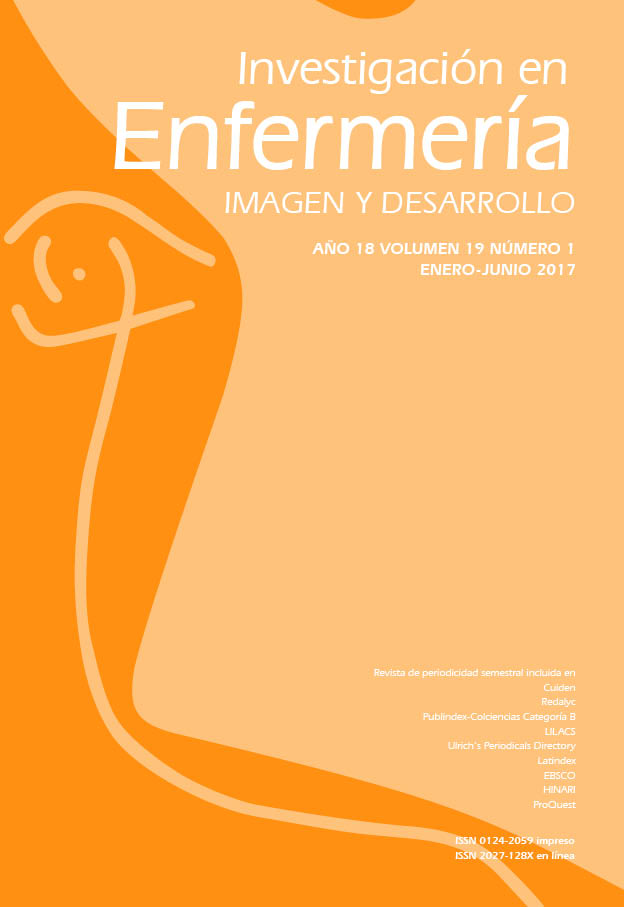Resumo
Las concepciones que tienen las enfermeras sobre la muerte moldean su significado, lo que genera una polisemia en torno a esta noción. Objetivo: Explorar los significados que construyen las enfermeras sobre los asuntos culturales y espirituales relacionados con la muerte de los pacientes. Método: Estudio cualitativo con enfoque etnográfico. Se realizaron 23 entrevistas a enfermeras y aproximadamente 100 horas de observación en un hospital en Medellín (Colombia) entre diciembre del 2012 y noviembre de 2013. Resultados: El interés por el alma se manifestó como una intención de respetar las concepciones del paciente, familiares y sensibilidad hacia los rituales. El proceso de la muerte se enmarca en un choque cultural. Conclusión: las concepciones culturales y religiosas se manifiestan en la práctica de los cuidados al final de la vida. Los rituales buscan dar tranquilidad al paciente y a sus familiares en el tránsito hacia la muerte de la persona y que “descanse en paz”. Por esto, los asuntos culturales y religiosos se relacionan con un interés por el alma.A revista Investigación en Enfermería. Imagen y Desarrollo encontra-se registada sob a licencia Creative Commons Versão 4.0 Internacional. Portanto, esta obra pode se reproduzir, distribuir e comunicar publicamente em formato digital, sempre que dado o crédito apropriado para os autores e a Pontificia Universidad Javeriana. Permite-se citar, adaptar, remixar, transformar, autoarquivar, republicar e criar a partir do material, para qualquer fim, mesmo que comercial, sempre que indicado apropriadamente o nome do criador, provido um link para a obra original e indicado se mudanças foram feitas. A Pontificia Universidad Javeriana não retém os direitos sobre as obras publicadas e os conteúdos são responsabilidade exclusiva dos autores, os quais conservam seus direitos morais, intelectuais, de privacidade e publicidade.
O aval sobre a intervenção da obra (revisão, correção, edição, tradução, formatação) e a subsequente difusão disponibiliza-se através de licença de uso e não através de transmissão de direitos, o que representa que a revista e a Pontificia Universidad Javeriana são isentas de qualquer responsabilidade que puder se derivar de uma prática ética pobre por parte dos autores. Em consequência da proteção fornecida pela licença de uso, a revista não fica na obrigação de publicar retratações ou alterar informações já publicadas, a não ser que a errata seja decorrente do processo de gestão editorial. A publicação de conteúdos nesta revista não representa royalties para os contribuintes.


